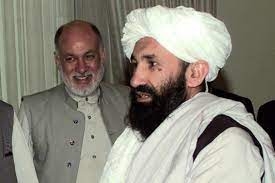
Al Jazeera: The Taliban has announced an all-male caretaker government drawn exclusively from its inner echelons, including a man under United Nations sanctions as prime minister and another on a United States “terrorism” list as interior minister.The names announced for the new government on Tuesday, three weeks after the Taliban swept to military victory as US-led foreign forces withdrew, gave no sign of an olive branch to its opponents.Mullah Mohammad Hasan Akhund – a senior minister during the Taliban’s brutal and oppressive rule in the 1990s – was appointed interim prime minister, while the group’s co-founder Abdul Ghani Baradar, who oversaw the signing of the US withdrawal agreement in 2020, was appointed deputy prime minister.Appointed to the key post of interior minister was Sirajuddin Haqqani, one of the founders of the Haqqani network, classified as a “terrorist” group by Washington. He is one of the FBI’s most wanted men due to his involvement in suicide attacks and ties with al-Qaeda.Here is how the countries and international groups are reacting to the announcement.
United States: The US said it was concerned about the “affiliations and track records” of some of the people named by the Taliban to fill top posts in Afghanistan’s new government.“We note the announced list of names consists exclusively of individuals who are members of the Taliban or their close associates and no women. We also are concerned by the affiliations and track records of some of the individuals,” a spokesperson for the Department of State said.“We understand that the Taliban has presented this as a caretaker cabinet. However, we will judge the Taliban by its actions, not words.”
Turkey: Turkish President Recep Tayyip Erdogan said he was carefully monitoring developments in Afghanistan.“We don’t know how long this interim cabinet will last. All we have to do is to follow this process carefully,” he told reporters during an official visit to Democratic Republic of the Congo.
Qatar: The Taliban show “pragmatism” and should be judged on their actions, a top Qatari official told the AFP news agency in an exclusive interview, adding there was “no question” the group were Afghanistan’s de facto rulers.“They have shown a great deal of pragmatism. Let’s seize the opportunities there… and look at their public actions,” said Assistant Foreign Minister Lolwah al-Khater, who stopped short of announcing formal recognition of Afghanistan’s new rulers.“They are the de facto rulers, no question about that.”
China: Beijing said it welcomed the end of “three weeks of anarchy” in Afghanistan with the establishment of a new interim government in Kabul, calling on the Taliban to restore order in the country.China has been scathing about the American withdrawal, which it criticised as ill-planned and hasty. On Wednesday it said the new government would help bring stability.
“China attaches great importance to the announcement by the Taliban of the establishment of an interim government and some important personnel arrangements,” said foreign ministry spokesman Wang Wenbin at a press briefing.“This has ended more than three weeks of anarchy in Afghanistan and is a necessary step to restore order and rebuild the country.”While much of the world has adopted a wait-and-see approach to engagement with the Taliban, China has already said it is ready to build friendly relations with the group following their takeover.
European Union: The European Union said the “caretaker” government unveiled by the Taliban in Afghanistan failed to honor vows from the new rulers to include different groups.“Upon initial analysis of the names announced, it does not look like the inclusive and representative formation in terms of the rich ethnic and religious diversity of Afghanistan we hoped to see and that the Taliban were promising over the past weeks,” an EU spokesperson said.
United Nations: Farhan Haq, a spokesman for the UN, said the global body does not engage in acts of recognition of governments.“That is a matter that’s done by member states, not by us. From our standpoint, regarding today’s announcement, only a negotiated and inclusive settlement will bring sustainable peace to Afghanistan,” he told reporters.The UN is committed “to contribute to a peaceful solution, promote the human rights of all Afghans, notably women and girls,” and provide life-saving humanitarian assistance, he added.
UN Women:Pramila Patten, the head of the UN women’s agency said the Taliban’s exclusion of women in Afghanistan’s new government calls into question its commitment “to protect and respect the rights” of women and girls.

